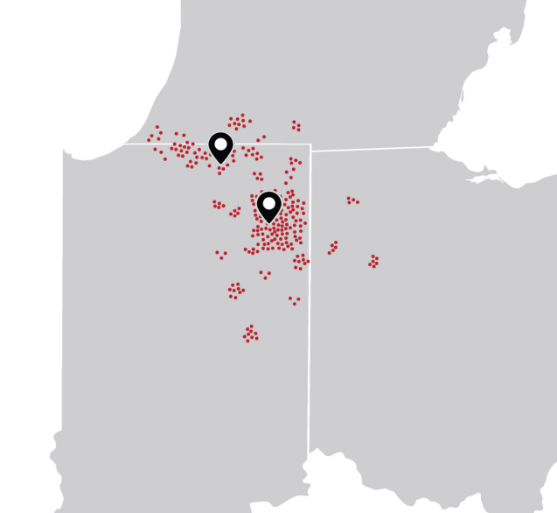When I was 18 years old, I worked full-time in construction and started a business called Shiner. After work and on my weekends I worked on my side business detailing cars in my hometown. This business was like an 18-year old’s Lemonade stand. I made flyers and would stick them on peoples cars while they were in church, made T-shirts and hit up everyone I could about how I could detail their car. I started in my parent’s backyard and then moved into several rented spaces in town.
When you wax a car, there is an element of artistic timing; where you need to allow the wax to dry enough that it stays on, but not hard enough that you can’t buff it off. If it get’s too hard, you need to work really hard to get it off, as it dries milky white. On a white paint job, you can’t see this straight on, but rather only at the right angle. On darker colored paints it’s very apparent. In moments of weakness, in moments of wanting the reward of finishing the project sooner, I would allow these blemishes to stay on the white paint jobs. You could only see them at certain angles, and I could get away with it. Yes, a younger version of me wanted to do anything I could get away with anything.
But one time, while working on a white semi truck, I was doing the work for my cousin, who would not accept anything other than excellence. I knew he wanted the best, and if he found out it wasn’t the best, he would share his findings with me. That day I decided to do my best work on the white paint. I had to think through my timing better. I was waxing and buffing each piece of the vehicle one at a time. I would do the door, then the fender, then the bumper. Each time applying the wax, waiting a minute and then buffing that section. Each section was manageable and I would only move on to the next section when that piece was 100%. It actually didn’t take much more work, because the extra effort on that piece was actually only maybe a minute. I felt better about my work. I could stand next to my work and be proud of what I made. I was pouring myself into the work. My focus was on doing my best. This was a different feeling that before. I loved this feeling and the work I was making.
Before when I would do the work, not up to my best, I had a fear of being found out. “Were they going to notice the bad work? If they did, would they call it out? What excuse or lie could I tell to get out of this? Did I feel my best about my work?” This actually sucked. Instead of taking the time to do my best, I heaped shame, guilt, and nervousness onto myself. I had to do so much extra activity hiding, so much more of myself was consumed with feeling less-than, because I was choosing easy and fast over my best.
It was in someone else having higher expectations for me that I needed to perform better. But what I found was that higher expectations actually served me. It brought the best out of me. I have lived both lives. One with my best work, and one with me holding back my best. Whether out of laziness, saying there was not enough time, or just not preparing well – I have done less than I was capable. I have also chosen to show up and do my best. I have made choices to do my best even when it took more time, more resources, or frustrated other people. And what I have found is my best work makes me feel the best. It feels good to do my best work. The goal is for me to finish my day, my week, and my life and to think – well done.
Is this writing my best work, is me leading our company my best work? You bet it is. I’m playing all out. I’m fighting complacency, I’m fighting the temptation to do less, or just get by with things. We all are. That’s why we need each other. And we need people who bring out our best; they challenge what we call good. They ask, “Is this your best work?” And if it’s not, we need to take that work back and do it until we can say it is.
When I do work. I want to know its useful. It’s a thing of beauty. It’s my best. It’s a job well done.
Can you say the same?

